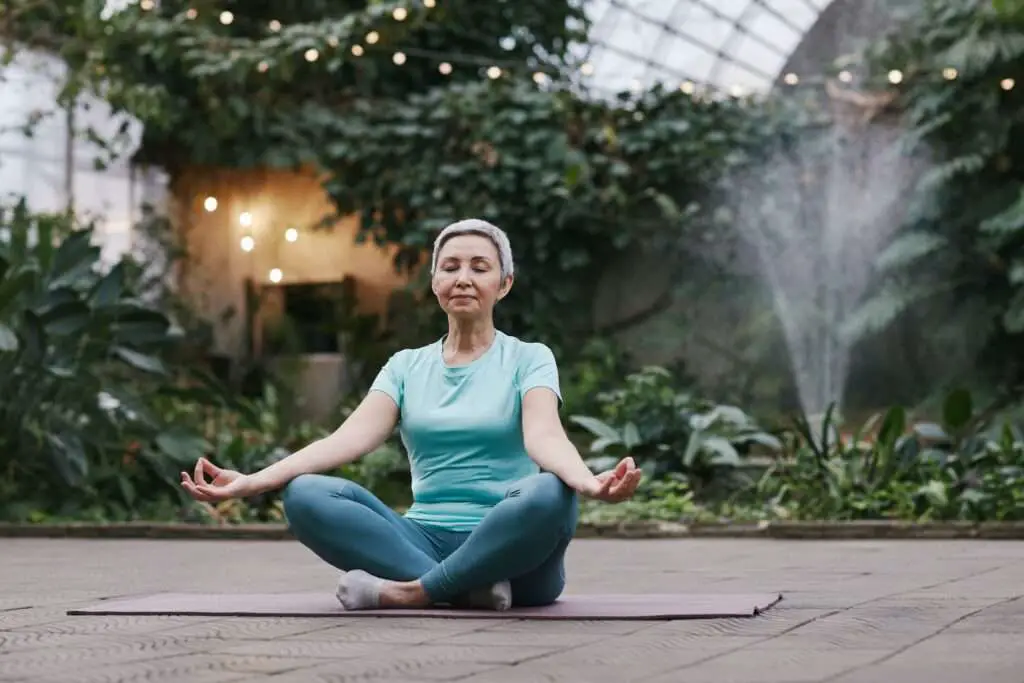Mindful Meditation for Beginners: A Step-by-Step Guide
In today’s fast-paced and stressful world, many people are turning to mindfulness meditation as a way to find inner peace and balance. Mindful meditation is a practice that involves focusing your attention on the present moment, without judgment. It can help reduce stress, improve mental clarity, and promote overall well-being. If you’re new to meditation and interested in starting a mindfulness practice, this step-by-step guide will help you get started.

Understanding Mindful Meditation
What is Mindful Meditation?
Mindful meditation is a form of meditation that involves bringing your attention to the present moment. It is about being fully aware of your thoughts, feelings, bodily sensations, and the surrounding environment without judgment. By practicing mindfulness, you develop a sense of clarity and calmness.
Benefits of Mindful Meditation
There are numerous benefits to practicing mindful meditation. Research has shown that regular meditation practice can reduce stress, lower blood pressure, improve focus and concentration, boost creativity, and enhance overall well-being. It can also help manage anxiety and depression, improve sleep quality, and increase self-compassion.
Preparing for Mindful Meditation
Finding a Quiet Space
To begin your meditation practice, find a quiet space where you can have some privacy and minimize distractions. It could be a dedicated meditation room, a corner in your home, or any place where you feel comfortable and at ease.
Choosing a Comfortable Position
Next, choose a comfortable position to sit in during your meditation. You can sit on a cushion on the floor with your legs crossed, or on a chair with your feet planted firmly on the ground. The key is to find a position that allows you to be alert and relaxed at the same time.
Setting a Timer
To avoid constantly checking the clock, set a timer for your meditation session. Start with a shorter duration, such as 5 or 10 minutes, and gradually increase it as you become more comfortable with the practice.
The Basics of Mindful Meditation
Focusing on the Breath
Begin your meditation by focusing your attention on the sensation of your breath. Notice the inhale and exhale, the rise and fall of your abdomen or chest. Whenever your mind starts to wander, gently bring your attention back to the breath without judgment.
Acknowledging Thoughts and Emotions
During meditation, thoughts and emotions may arise. Instead of getting caught up in them or trying to push them away, simply acknowledge their presence and let them pass by. Remember that the goal is not to stop your thoughts, but rather to observe them with curiosity and detachment.
Cultivating Non-Judgment
One of the core principles of mindfulness is cultivating non-judgment. As you meditate, practice observing your thoughts and emotions without labeling them as good or bad. Allow them to come and go, without attaching any significance to them.
Developing a Mindful Meditation Routine
Start with Short Sessions
When starting your meditation practice, it’s recommended to begin with shorter sessions. This allows you to build a habit without feeling overwhelmed. Start with 5 or 10 minutes a day and gradually increase the duration as you feel more comfortable and confident.
Gradually Increase the Duration
As you become accustomed to regular meditation, aim to extend your sessions to 15 or 20 minutes. Eventually, you can work your way up to 30 minutes or longer. The key is to listen to your body and find a duration that works best for you.
Consistency is Key
Consistency is essential in establishing a meditation routine. Aim to meditate at the same time each day, whether it’s in the morning, during your lunch break, or in the evening. Consistency helps make meditation a natural part of your daily life.
Overcoming Common Challenges
Dealing with Restlessness
Restlessness is a common challenge that beginners may encounter during meditation. If you find yourself feeling restless or antsy, try adjusting your posture, taking a few deep breaths, or incorporating gentle movement, such as stretching or walking, before your meditation session.
Managing Distractions
Distractions are inevitable, especially when you’re new to meditation. When you notice your mind wandering or getting caught up in external stimuli, gently bring your attention back to your breath or your chosen point of focus. Be patient and compassionate with yourself.
Letting Go of Expectations
It’s important to approach meditation without expectations or judgment. Be open to whatever arises during your practice, whether it’s a sense of calm or a busy mind. Remember that each meditation session is unique and valuable in its own way.
Deepening Your Mindful Meditation Practice
Exploring Guided Meditations
Guided meditations can be helpful, especially for beginners. There are many apps, websites, and YouTube channels that offer guided meditation recordings. These guided sessions provide instructions and support, making it easier to stay focused and engaged.
Attending Meditation Classes or Retreats
Consider attending meditation classes or retreats to deepen your practice. Being in a group setting allows you to learn from experienced teachers, connect with like-minded individuals, and immerse yourself in a supportive meditation community.
Incorporating Mindfulness into Daily Life
Beyond formal meditation sessions, strive to incorporate mindfulness into your daily life. Practice being present and fully engaged in whatever you’re doing, whether it’s eating, walking, or interacting with others. Mindfulness is a way of living that extends beyond the meditation cushion.
The Benefits of Mindful Meditation
Reducing Stress and Anxiety
One of the primary benefits of mindful meditation is its ability to reduce stress and anxiety. By focusing on the present moment, you can let go of worries about the future or regrets about the past, leading to a greater sense of calm and relaxation.
Enhancing Self-Awareness
Mindful meditation enhances self-awareness by encouraging you to observe your thoughts, emotions, and physical sensations. Through this practice, you gain insight into your habitual patterns of thinking and behaving, allowing you to make conscious choices that align with your values.
Improving Emotional Well-being
Regular meditation practice has been shown to improve emotional well-being. It can help regulate emotions, increase positive emotions such as joy and gratitude, and reduce negative emotions like anger and sadness. Mindful meditation cultivates a greater sense of emotional balance and resilience.
Conclusion
Mindful meditation is a powerful tool that can transform your life by fostering inner peace, reducing stress, and promoting overall well-being. By following this step-by-step guide, you can begin your journey into mindfulness and experience the benefits firsthand. Remember to start small, be consistent, and approach your practice with an open mind and heart.
FAQs (Frequently Asked Questions)
1. How long should I meditate as a beginner?
As a beginner, it’s recommended to start with 5 or 10-minute meditation sessions and gradually increase the duration as you become more comfortable.
2. Can I meditate lying down?
While it’s possible to meditate lying down, it’s generally advised to sit upright to maintain alertness and prevent falling asleep.
3. How often should I meditate?
Consistency is key in meditation. Aim to meditate at least once a day, preferably at the same time, to establish a routine.
4. What if I can’t stop my thoughts during meditation?
It’s normal for thoughts to arise during meditation. Instead of trying to stop them, simply observe them without judgment and gently bring your attention back to your breath or chosen point of focus.
5. How long does it take to experience the benefits of meditation?
The benefits of meditation can vary from person to person. Some people may notice positive changes after just a few sessions, while others may take longer. With consistent practice, you can gradually experience the transformative effects of mindful meditation.



